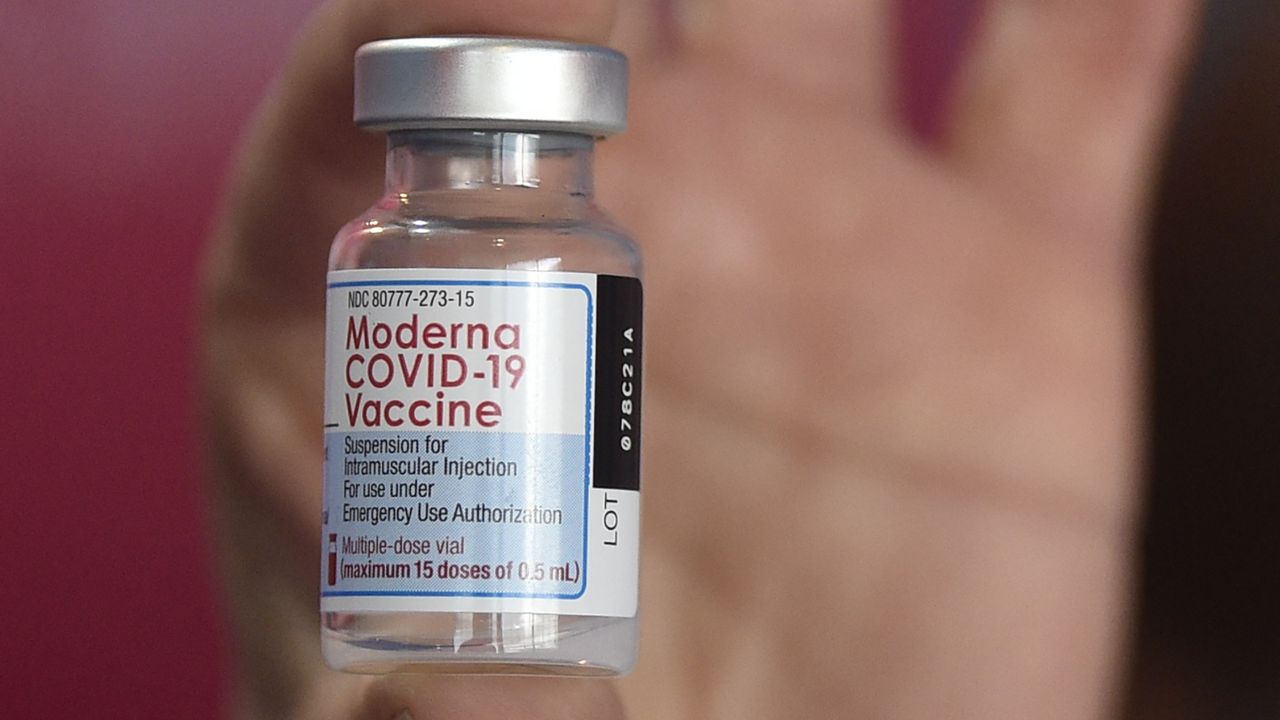An independent advisory panel to the Centers for Disease Control and Prevention (CDC) voted unanimously on Thursday to recommend boosters of the Moderna and Johnson & Johnson COVID-19 vaccine for certain at-risk groups, and to recommend boosters for J&J recipients two months after receiving their first dose.
Hours later, CDC Director Dr. Rochelle Walensky signed off on the panel's recommendation, clearing the way for vaccine boosters to be administered nationwide.
The panel voted to recommend boosters of both vaccines for Americans over 65, as well as those over 18 who are at higher risk of severe disease or are at a higher risk of exposure to the virus due to their work.
The CDC panel approved so-called “mixing and matching” of vaccines, which would allow people take a booster dose of a different vaccine than the one initially received.
The Food and Drug Administration authorized both steps on Wednesday, as part of a push to broaden booster access for the American public, as well as the mixing and matching of different vaccines for booster doses.
Last week, researchers presented the findings of a federally funded study on mixing and matching to an FDA advisory panel. While the study has not yet been peer reviewed, it suggested that the process is safe and effective.
Additionally, for those who were initially vaccinated with the single-shot Johnson & Johnson jab, the study found that a booster of one of the two mRNA vaccines (Pfizer-BioNTech or Moderna) increased protection substantially. While a booster dose of Johnson & Johnson provided a four-fold increase in antibodies, a booster of Pfizer saw a 35-fold increase in antibodies – and a Moderna booster raised antibodies by a factor of 76.
Allowing mixing and matching could alleviate supply issues, make the task of getting a booster simpler for Americans and allow people who may have had adverse reactions to the initial dose to try a different shot.
Also Thursday, Pfizer and BioNTech’s clinical trial found a booster shot of their COVID-19 vaccine is 95.6% effective against disease, the companies announced.
The high level of protection — roughly matching the initial efficacy of the first two shots — was recorded despite that the study was conducted as the highly transmissible delta variant remains the dominant coronavirus strain in the U.S.
“These results provide further evidence of the benefits of boosters as we aim to keep people well-protected against this disease,” Pfizer Chairman and CEO Albert Bourla said in a news release.
The trial tracked 10,000 volunteers ages 16 and older who previously received two doses of the Pfizer vaccine — half were given an additional dose, the other half a placebo. The median time between the second dose and booster shot in the participants was about 11 months, and the median follow-up time was 2½ months.
During the study period, five people in the booster group were infected, compared to 109 in the non-boosted group.
Said BioNTech CEO Dr. Ugur Sahin, “Based on these findings we believe that, in addition to broad global access to vaccines for everyone, booster vaccinations could play an important role in sustaining pandemic containment and a return to normalcy.”
More than 11 million Americans have already received a booster dose of a COVID-19 vaccine, according to data from the CDC, with more than 9 million people receiving a third dose of Pfizer-BioNTech's shot.
The Associated Press contributed to this report.



